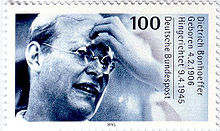I enjoy well-crafted biographies. Examining the details of meaningfully-led lives, with the help of capable and honest scholars who are also talented writers, can be inspiring and instructive. When asked by an educator during the space race of the 1960’s, what students ought to be studying, Professor Einstein (not my topic) didn’t say math and science, but rather, he suggested they read the lives of the great ones.
Recently I’ve enjoyed a pairing of such literary encounters in the lives of two magnanimous, heroic Europeans: Albert Schweitzer, and Dietrich Bonhoeffer. Both men were courageously independent thinkers with high ideals; both thrived on learning, and both sacrificed personal success while striving to make significant contributions to our social conditions. And both were seriously impacted by war, becoming estranged from conventional church-life, while yet remaining deeply committed to spiritual living. The pairing of these two books is sublime, for which I thank the Divine Librarian!
SCHWEITZER: A Biography, by George Marshall and David Poling, is NOT the topic of my review, but the book can be found by clicking.
While Schweitzer’s life (“my life is my argument”) may have inspired me a bit more – his project lasted for over fifty years, into his 90’s – Bonhoeffer’s may be more challenging and instructive in its shortness and cost. I read his book, Cost of Discipleship, some years ago, which I thought profound. This biography expands my appreciation of his contributions significantly. Therefore my review will focus entirely on the Bonhoeffer biography, STRANGE GLORY since this book is newly available in paperback. (I made copious notes in it, while the Schweitzer bio was a nice first edition from 1971 which I found online for little more than cost of shipping, so I didn’t mark it up.)
As a result of the B-biography, I now have a much deeper understanding of how Germany came to be drawn into WW2 — and church history played a significant role – more-so than mere geopolitics, which is what I recall from history classes. Yes, the Treaty of Versailles ending the Great War was overly punitive, financially, to Germany (which makes the current German action towards the Greek economy seem ironic). But I wasn’t aware of the way Hitler manipulated the German churches which received funding from the state for social functions such as funerals, baptisms, weddings – and still do.
He had been a German citizen for only a year when he was appointed Chancellor by Pres.Hindenburg, who died a year later, in 1934. Hitler installed a puppet Reichskircher, head of church/state rules and relations, and then used him to fan flames of nationalism, mostly among conservatives, regarding economic injustices imposed by the Treaty ending the previous war.
Bonhoeffer was a young academic tutor at the time, having just finished his doctorate in theology. He could see what was being done on the political stage, and attempted to rally opposition against the regime, by forming resistance groups in the churches. But the liberal position of Bonhoeffer and his young adherents was easily and ruthlessly outlawed, making them into enemies of the state, eventually. This is all told in very compelling prose, knit together by careful research from an author who has spent much of his career studying B’s life. The politics against the churches were masterful, and bloody – the undetected aim being to gut the churches of moral sentiment, effectively canceling Christianity as a social power in Germany.
For those with delicate sentiments I will alert you that there is evidence in this volume of clay feet, which I will not spoil by elaborating beyond the word SEX. The case builds, and the conclusion near the very end is surprising, and credible, in an almost incredible way. But such are the natures of some deeply honorable people

